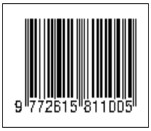KEDUDUKAN HAK WARIS ANAK ANGKAT DALAM HUKUM POSITIF INDONESIA
Abstract
In a marriage, husband and wife are not always blessed with a child. To realize the dream of this married couple, many adopt children or adopt children as adopted children. the process of implementing child adoption which is carried out according to custom (customary law) and based on a court decision is valid and legally attached to the child's rights and obligations as a child to his adoptive parents. What is the status of the adopted child's inheritance rights in Indonesian Positive Law? That the position of the inheritance rights of adopted children in Indonesian positive law, namely based on the Civil Code/BW, Islamic law and customary law have differences in the implementation of social life. According to the inheritance law in the Civil Code which refers to Burgerlijk Wetboek (BW) does not directly mention the term adopted child/adopted child, that's why Staatsblad Number 129 of 1917 was made as a complement to BW in regulating this problem. As a result of the law of adoption regulated in the Staatblaad. 1927 No. 129, namely Article 11 explains that the adopted child legally obtains the name of the adoptive father, and Article 12 paragraph (1) states that adopted children are made as children born from the marriage of adoptive parents. So it can be said that the adopted child becomes the heir of the adoptive parents because the adoption causes the termination of all civil relations between the child and his biological parents. In Islam, foster or adopted children are not entitled to inheritance. however, Islamic law does not completely rule out the opportunity for adopted children to get a share of the assets of their adoptive parents, that is, adopted children are entitled to an obligatory will which amounts to no more than 1/3 of a part, this is as stated in Article 209 KHI (Compilation of Islamic Law ). Meanwhile, according to customary law, the position of inheritance rights for adopted children refers to the customary law system of each region because customary law recognizes the kinship system, namely the patrilineal, matrilineal and parental kinship systems which will later affect the inheritance position of adopted children in the kinship system.
Keywords
Full Text:
PDFReferences
Abdul Manan. (2006). Hukum Perdata Islam di Indonesia, Kencana, Jakarta.
Ali Afandi. (2004). Hukum Waris, Rineka Cipta. Jakarta.
Djaja S. Meliala. (2018). Hukum Waris Menurut Kitab Undang-Undang Hukum Perdata, Penerbit Nuansa Aulia, Bandung.
Gregor van der Burght. (1995). Hukum Wari, PT Citra Aditya Bakti, Bandung.
H.Yuhelson. (2017). Pengantar Ilmu Hukum, Ideas Community, Gorontalo.
Herimanto dan Winarno. (2012). Ilmu Sosial & Budaya Dasar, PT Bumi Aksara, Jakarta Timur.
https://simdos.unud.ac.id/uploads/file_penelitian_1_dir/4a28a7db9041a180b867c884eb2f7b65.pdf
I Gede Panetje. (1986). Aneka Catatan Tentang Hukum Adat Bali Kayumas.
I Gede Pantja Astawa. (2008). Dinamika Hukum dan ilmu Perundang-Undangan di Indonesia PT. Alumni, Bandung.
I Ketut Artadi. (2006). Hukum Dalam Perspektif Kebudayaan: Pendekatan Kebudayaan terhadap
Hukum, Pustaka Bali Post, Denpasar.
Johan Agustian. (2014). Pengangkatan Urang Bainduak Pada Masyarakat Minangkabau Di Nagari Ampang Kuranji Premise Law Journal.
Kitab Undang-Undang Hukum Perdata.
Kompilasi Hukum Islam (KHI)
Muhammad Rais. (2016). Kedudukan Anak Angkat Dalam Perspektif Hukum Islam, Hukum Adat Dan Hukum Perdata (Analisis Komparatif), Jurnal Hukum Diktum, Volume 14, Nomor 2, Desember 2016: 183 – 200
Peter Mahmud Marzuki. (2008). Pengantar Ilmu Hukum, Kencana, Jakarta.
PP No 54 Tahun 2007 Tentang Pelaksanaan Pengangkatan Anak
R. Wirjono Prodjodikoro. (1980). Hukum Warisan Di Indonesia. Sumur Bandung, Cet. Ke-6, Bandung.
Riduan Syahrani. (1999). Rangkuman Intisari Ilmu Hukum, Penerbit Citra Aditya Bakti,Bandung.
Samidjo. (1985). Pengantar Hukum Indonesia C.V Armico, Bandung.
Satjipto Raharjo. (2000). Ilmu Hukum,Bandung: PT. Citra Aditya Bakti.
SEMA No. 6 Tahun 1983
Subekti. (2003). Pokok-pokok Hukum Perdata, PT Intermasa, Jakarta.
Sudikno Mertokusumo. (2016). Mengenal Hukum, Liberty, Yogyakarta.
Undang-Undang No. 23 Tahun 2002 Tentang Perlindungan Anak
Wayan P. Windia. (2017). Sistem Pewarisan Menurut Hukum Adat Bali, Disajikan dalam Kuliah Umum di Fakultas Hukum Unipas, Jakarta, Tanggal 21 Mei 2017, Bertempat di Ruang Pertemuan Fakultas Hukum Unipas, Jakarta,
Wayan P. Windia. (2014). Hukum Adat Bali, Aneka Kasus Dan Penyelesaiannya, Udayana University Press.
Wiryono Projodikoro. (1983). Hukum Waris di Indonesia, Sumur, Bandung.
Yulia. (2015). Buku Ajar : Hukum Perdata, Penerbit CV. BieNa Edukasi – Lhokseumawe.
DOI: https://doi.org/10.35327/gara.v17i3.526
Refbacks
- There are currently no refbacks.
Copyright (c) 2023 GANEC SWARA

This work is licensed under a Creative Commons Attribution-ShareAlike 4.0 International License.
TERINDEKS
|
_______________________________
Ganec Swara
Published by UNMAS Denpasar K. Mataram |
Email: ganecswara@gmail com; aminullahmtk@gmail.com

This work is licensed under a Creative Commons Attribution-ShareAlike 4.0 International License.











